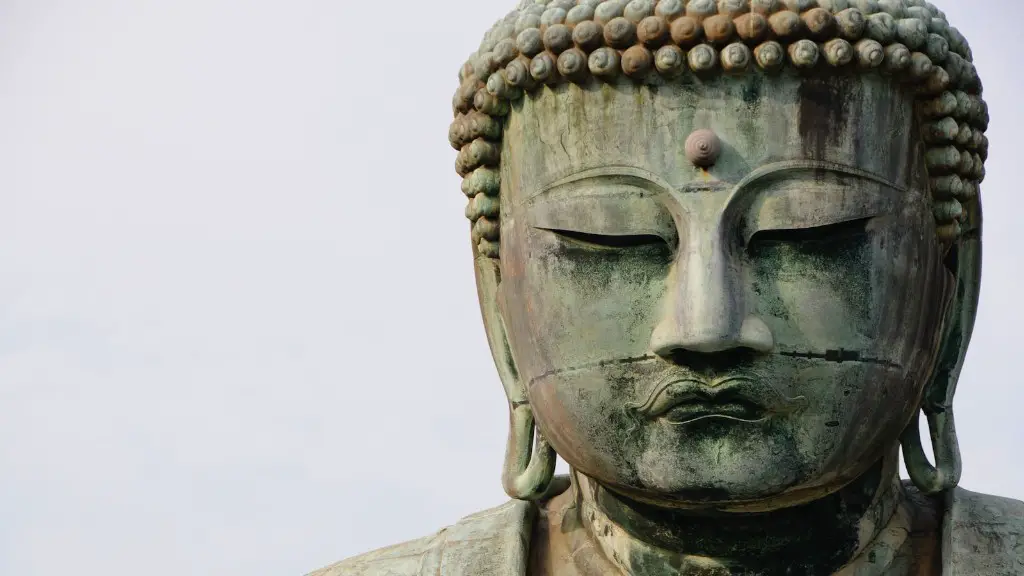Christianity is one of the most influential and pervasive beliefs in the western world. Its roots stretch back to the Middle East in the first century AD, but in the intervening centuries it has traversed the globe, becoming a powerful force in Europe, Africa, the Americas and beyond. Since its early days, Christianity has had a profound impact on European culture and society, leading to everything from sweeping societal reforms to advances in arts and sciences.
The spread of Christianity throughout Europe was greatly accelerated by the mission of Saint Patrick in the 5th century, who helped to spread the gospel to the people of Ireland. This was soon followed by the converts of the Franks in Gaul, who were baptized as Christians by Saints Boniface and Willibrord in the 8th century. By the 11th century, Christianity had become the dominant belief in most of Europe and its influence was felt in every aspect of life.
One of the most significant effects of Christianity in Europe was the rise of feudalism. As the Church became an increasingly powerful political force in Europe, the feudal system was established which provided the social order necessary for the expansion of the faith. Feudalism divided the population into classes, with the nobility controlling vast swathes of land, owning and exploiting the peasants. The Church was often at the heart of this system, claiming tithes and taxes from the population and providing spiritual guidance while protecting the rights of the lords.
Christianity also played a pivotal role in influencing the political structure of Europe. Many modern European states were heavily influenced by Christian beliefs when they were originally formed, with monarchs claiming divine right to rule as God’s chosen representatives on earth. This ideology was passed down from generation to generation, leading to a strong emphasis on loyalty to the crown and obedience to God’s law.
The spread of Christianity also brought with it a revival in education, with the Church becoming a major power in knowledge and learning. Universities were established throughout Europe in which students could read and learn the teachings of the Church. These universities also served as centres of learning, in which scholars could debate and discuss theology and other topics. This led to the flourishing of many schools of thought and the establishment of the scientific method as a way of exploring the world.
In terms of culture, Christianity had a deep influence on many aspects of European life. Churches and other religious buildings sprang up all over the continent, often becoming powerful symbols of the faith. Prominent artists would put their faith on display in their works, and music was composed in the Christian tradition. Many of the philosophical schools which developed during the Middle Ages were heavily influenced by Christian ideas, such as Thomas Aquinas’s ‘Summa Theologica’.
Finally, Christianity was instrumental in the development of literature in Europe, with many of the iconic works of the period being heavily infused with religious symbolism. Dante’s ‘Divine Comedy’ was one of the most influential works of the time and served to further popularize the faith while providing a framework for exploring the nature of sin, judgement and redemption. These themes endure to this day in many works of literature.
Political and Social Impact
The impact of Christianity on Europe was not limited to the arts and sciences, with the religion also having very real effects on political and social structures across the continent. In the Middle Ages, the power of the Church was unparalleled and even kings were expected to abide by its teachings. This influence carried through into the Renaissance period, with the Church playing a major role in maintaining the political hierarchy by instituting systems such as the sale of indulgences.
The Church also had a profound effect on social relations, dictating the roles and responsibilities of people in society. Husband and wife relationships were heavily regulated by the Church, with marriages often being arranged between families along religious lines. Women were viewed through the Church as second-class citizens and were expected to obey their husbands in all matters. Similarly, the Church viewed the lower classes with disdain, considering them to be in a position of subjugation to the noble classes.
Scientific Advancement
Despite the oppressive power of the Church, the period of the Renaissance was a time of rapid scientific advancement in Europe in part due to the Church’s promotion of education and learning. The Church actively encouraged the exploration of the physical world, viewing it as a manifestation of God’s will. This encouraged the development of sciences such as biology, physics, astronomy and mathematics which provided a framework for further exploration. This was augmented by the work of prominent figures such as Galileo and Newton, who used mathematics and empirical evidence to explain the workings of the world.
The Church also fostered the development of medicine, performing extensive research and providing medical care to the poor. This led to advances in pharmacology and public health, with hospitals and medical schools being established throughout Europe. The Church also provided a supportive environment for research and experimentation, as long as it was within the bounds of Church doctrine. This allowed for a culture of inquiry and innovation which carried through to the present day.
Spread of Culture and Ideas
The influence of Christianity on Europe extended far beyond the realm of worship and scholarship, and contributed significantly to the spread of culture and ideas across the continent. As Christian ideals spread the acceptance of different languages and cultures also increased, leading to a greater understanding between peoples. The Church also championed the preservation of European history, with many religious books and manuscripts being preserved and carefully studied.
This also meant that knowledge could be shared more easily, and ideas disseminated far and wide. This allowed for a new level of communication, with scholars and writers being able to correspond with each other across the continent and discuss their ideas. This facilitated the spread of science, philosophy and theology, leading to further cultural exchange and the development of new ideas.
Political Tension and Revival
Despite the widespread acceptance of Christianity throughout Europe, the religion was not without opposition, and has often been seen as the source of political and social tension. During the Protestant Reformation, which began in the 16th century, disagreements arose between religious sects and formed the basis of political turmoil and conflict. This conflict caused much disruption to European society, with wars and uprisings challenging the status quo of the established Church and leading to the displacement of many people.
More recently, the modern revival of Christianity in Europe has led to both positive and negative effects. In some areas, the presence of the Church has contributed to a more tolerant and accepting society in which different faith traditions can coexist peacefully. However, in other regions the Church has become a source of intolerance, with harsh punishments and social ostracism for those who express dissenting opinions.
Conclusion
Overall, it is clear that Christianity has had a profound influence on Europe over the centuries, from the early spread of the faith in the first century, to the modern day revival. Its impact has been felt in all aspects of life, from the political and social structures of the continent, to the arts, sciences and culture. Christianity has both enabled progress and stifled progress, providing the foundations upon which Europe has been built and providing a source of conflict and disruption in equal measure.

